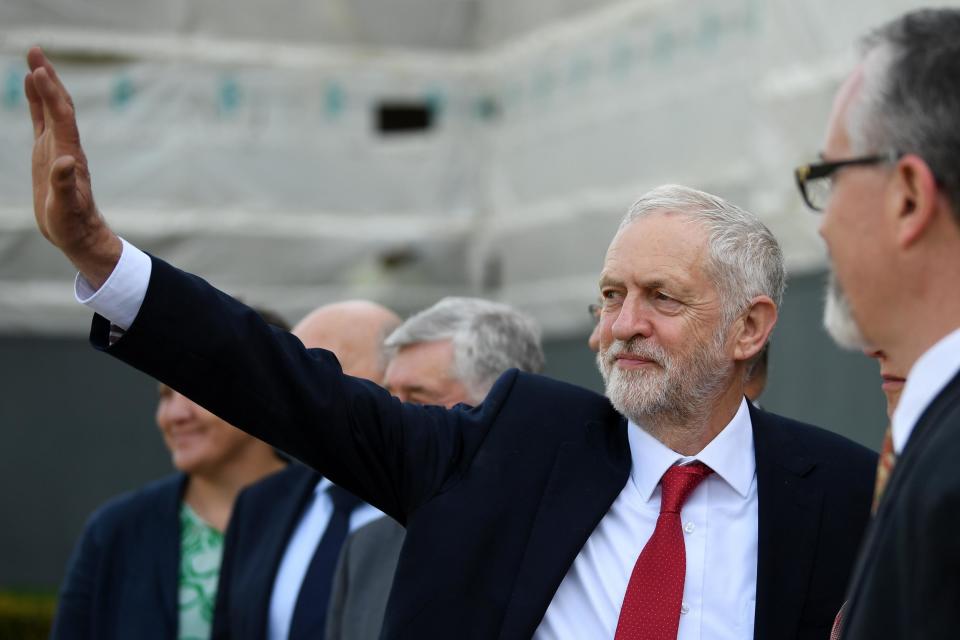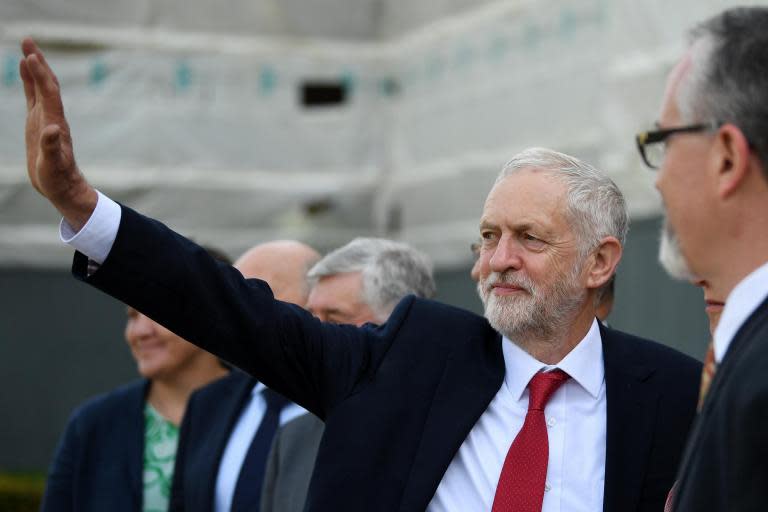Labour plan to trigger early election 'within days' if Theresa May’s Brexit deal is defeated in parliament
Labour will launch a plan to force an election by seeking a motion of no confidence in the government within days if Theresa May’s Brexit deal is defeated in parliament, The Independent has learnt.
Jeremy Corbyn and his top team will launch an attempt to force the Conservative administration to go to the people at what they believe will be a moment of maximum weakness for the prime minister.
Multiple sources confirmed party chiefs have game-planned their approach if Ms May’s beleaguered proposals are vetoed in a crucial commons vote or if she fails to get a deal in Europe, which looks increasingly likely after EU leaders torpedoed them earlier this week.
A motion of no confidence would need some support from Conservative MPs to pass, but either way would act to severely destabilise the prime minister as internal pressure for her to quit peaked.
The moment could also prove critical for Labour’s own approach to Brexit, with the party having stated its preference for an election while signalling that if one is not possible it could back a new referendum.
It comes as Labour starts its 2018 conference in Liverpool, with Brexit and the party’s approach to holding a fresh public vote on the outcome of negotiations set to dominate the agenda.
Mr Corbyn and his allies have up to now made no secret of their desire for a new election, but it is the first time that those in the shadow cabinet have set out how they would begin to push for an election immediately if a major Brexit crisis engulfs Ms May.
A senior Labour source said: “If Theresa May’s deal is voted down in parliament, then expect to see Labour come forward with a vote of no confidence within days.
“The party has always been clear that an election is needed, and we would push for that hard and immediately.”
If Theresa May’s deal is voted down in parliament, then expect to see Labour come forward with a vote of no confidence within days
Senior Labour source
Under the Fixed-term Parliaments Act passed during the coalition years, there are only two routes to securing an election outside of the allotted date every five years.
The first is if a motion for an early general election is agreed either by at least two-thirds of the whole House of Commons or passed without disagreement. The second, said to be favoured by Labour strategists, is the motion of no confidence.
The wording of the motion is set out in the 2011 legislation, meaning MPs would simply be asked to vote that “this house has no confidence in Her Majesty’s government”.
If it the motion passes by a simple majority, then a 14-day countdown would begin during which there is a window for another government to be formed.
If one can be, it would need approval from the Commons; but if one cannot, then an election takes place.
A member of the shadow cabinet told The Independent: “There are two things that you have to separate out: May’s position and that of the government.
“If her deal is voted down or there is no deal, then May could go, but the government may try to continue on, but I think that’s going to be very difficult for them. Pressure for an election would mount.
“So it is true to say that we would act very quickly as an opposition in trying to bring forward a motion no confidence, and that only requires a simple majority.”
A source in Mr Corbyn’s leadership team confirmed that bringing a quick motion of no confidence was a plan the party was looking at, but said there were other options to try and force an election as well.
If a motion is to succeed it would need some support from Tory MPs, which is a stumbling block given many Conservatives are fearful of losing their seats and allowing Mr Corbyn the opportunity to take power.
But the move would be a clear signal of intent from the opposition and would, following a collapse in Brexit talks, come at time when the number of Conservative MPs exasperated with Ms May could easily outnumber her majority.
A Tory rebel move to replace Ms May with a new leader without holding an election, meanwhile, could prove electorally toxic for an incoming Tory leader.
Polls show a majority – some 51 per cent of the public – wanting a new election if Ms May is replaced in a Conservative coup.
Shadow chancellor John McDonnell confirmed earlier this week that if the party cannot get an election then backing a second referendum would be an option for the party.
He said in a webchat with users of the Mumsnet website: “Our position is that any Brexit deal negotiated has to protect our economy and jobs.
“[Shadow Brexit secretary] Keir Starmer set out our six tests for any deal. If they are not met by whatever Theresa May brings back from Brussels, then we will not vote for the deal.
“My view, then, is that we should have a general election because, in a general election, people can not only debate the range of issues in full, they can also select the team that will then negotiate our future position. If we can’t get a general election, we are keeping the option of another vote – a people’s vote – on the table.”
At the conference this week more than 100 constituency Labour branches have submitted motions calling for the party to back a referendum on any final Brexit deal, with some kind of motion likely to be voted on.

 Yahoo News
Yahoo News 

